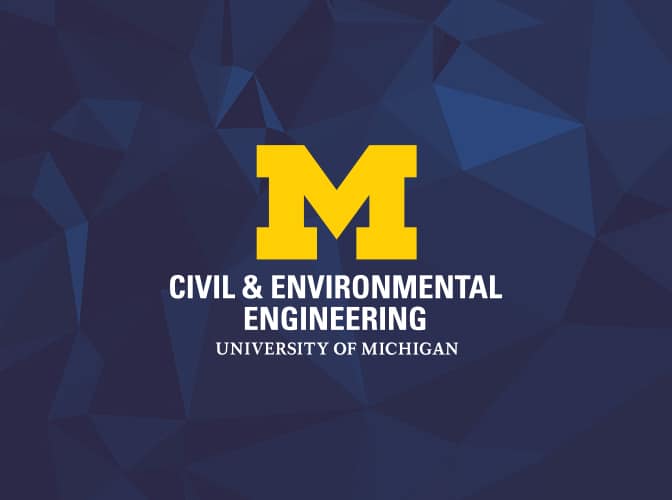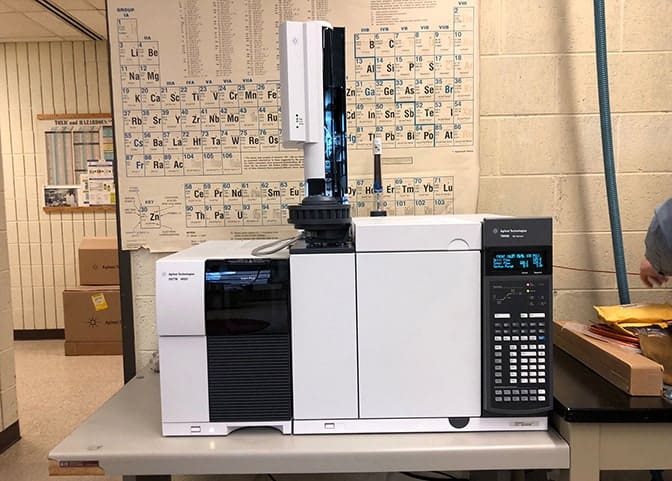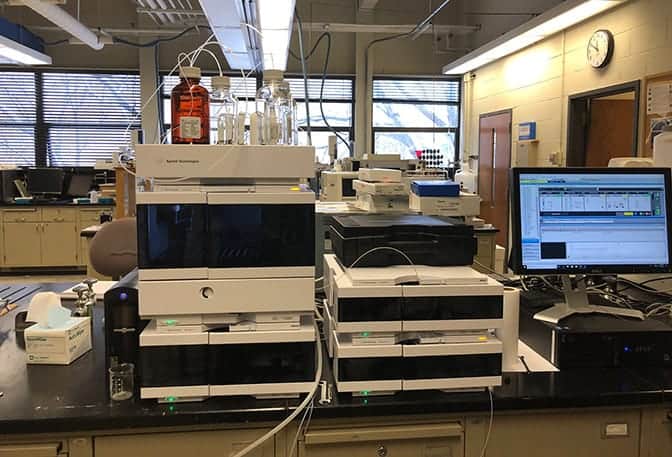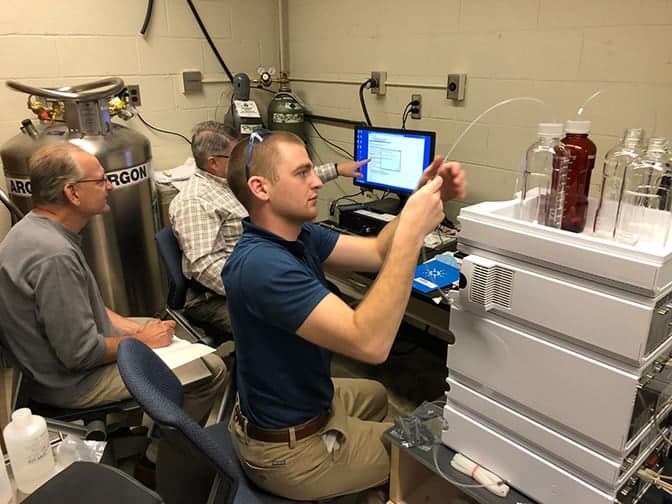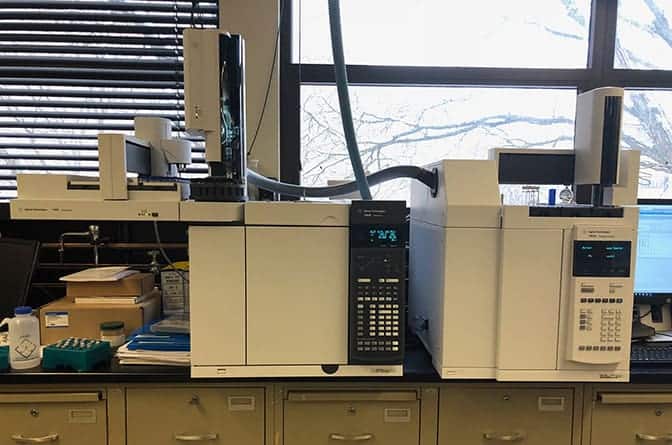Civil and Environmental Engineering is finishing up the installation of extensive upgrades to the lab equipment in the Core Analytical Facility in the Environmental and Water Resources Engineering (EWRE) building.
The upgrades makes more speciation available and the new equipment has better detection limits for measuring lower concentrations. The Core Analytical Facility is primarily utilized by environmental engineering undergraduates, graduate, doctoral students, post-doctoral researchers and faculty.
New analytical lab equipment from Agilent Technologies was installed for the following research capabilities:
Liquid Chromatography (LC) for Speciation on the Inductively Coupled Plasma Mass Spectrometry (ICP-MS)
New liquid chromatography equipment for speciation on the inductively coupled plasma mass spectrometry (ICP-MS) was installed. This equipment is used for elemental speciation studies. ICP-MS has superior detection capabilities, particularly for the rare-earth elements. Inductively coupled plasma mass spectroscopy is one of the most powerful methods for qualitative and quantitative trace element detection. ICP-MS has the capability to scan for all elements simultaneously. This allows for very rapid sample processing. An ICP-MS combines a high-temperature inductively coupled plasma source with a mass spectrometer. The ICP source converts the atoms of the elements in the sample to ions. These ions are then separated and detected by the mass spectrometer.
High Performance Liquid Chromatography (HPLC)
High-performance liquid chromatography equipment has been installed in the lab on the second floor of EWRE. HPLC is an analytical chromatographic technique that is useful for separating ions or molecules that are dissolved in a solvent. It is a technique used to separate, identify, and quantify each component in a mixture. It relies on pumps to pass a pressurized liquid solvent containing the sample mixture through a column filled with a solid adsorbent material. Each component in the sample interacts slightly differently with the adsorbent material, causing different flow rates for the different components and leading to the separation of the components as they flow out the column.
Gas Chromatography(GC) with Headspace Capability
New gas chromatography equipment with headspace capability was recently installed. Typical uses of GC include testing the purity of a particular substance or separating the different components of a mixture. In some situations, GC may help in identifying a compound.
Headspace capability refers to the gas space above the sample. Volatile sample components diffuse into the gas phase, forming headspace gas. A sample is placed in a closed sampling vessel, heated using a known temperature profile, and the vapor in the vessel is sampled for analysis.
Headspace sampling is essentially a separation technique in which volatile material may be extracted from a heavier sample matrix and injected into a gas chromatograph for analysis.
Gas Chromatography/Mass Spectroscopy (GC-MS)
New gas gas chromatography-mass spectroscopy equipment was also installed. Gas chromatography–mass spectrometry (GC-MS) is an analytical method that combines the features of gas-chromatography and mass spectrometry to identify different substances within a test sample. Applications of GC-MS include fire investigation, environmental analysis, explosives investigation, and identification of unknown samples. Additionally, it can identify trace elements in materials that were previously thought to have disintegrated beyond identification.
In addition to lab equipment upgrades, all computers had software updated to Windows 10 and the latest version of Agilent’s software, OpenLab CDS ChemStation edition, was installed. Cost for the equipment upgrades was shared between the College of Engineering and the department of Civil and Environmental Engineering.
